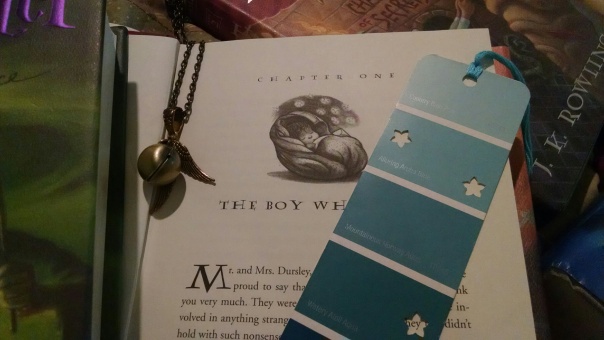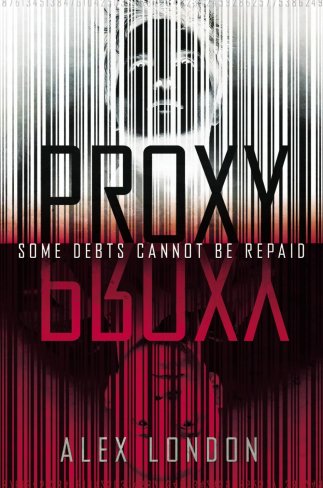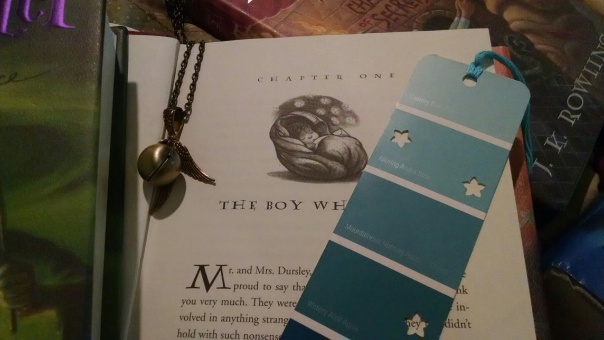
So, no jewelry this week, seeing as I’m late on this post anyway. The piece is made, but it’s not one that should be too hard to make a tutorial for, so I’d like to do that. For now, more thoughts, though.
*****
On probably the lightest note this post, I really wish I had the talent to draw my mental image of Hermione glowering at people and shaking the SPEW tin under their noses. It’s hilarious in my head, but my lines are way too static to pull off what I want out of it.
*****
I never actually got Harry and Hermione as a relationship until this reread, but this time around I can sort of see it. They do work remarkably well together, with the single qualifier of “when they have a goal.” When they don’t, they seem to get bored of each other a little bit, and it’s this as much as personal taste that makes me think they really do need Ron there as a buffer.
*****
Dumbledore casually insulting Aberforth by suggesting that he’s an idiot actually made me cringe this time around. Without the backstory it’s just an offhand joke, done in an attempt to make Hagrid feel better, but knowing the Dumbledore family’s history colors it completely differently. Knowing what happened then, it’s hard not to see that single comment as something of a remnant of the attitude that ended up with Dumbledore’s sister dead and his brother hating him. The man may have made a lot of strides toward trying to be kinder, but the parts of him that caused the problem in the first place certainly aren’t completely gone. And it’s not only in the manipulation that you can see them.
*****
I lied above. The actual lightest note in this post: apparently Hogwarts’ sewage system comes out in the Great Lake. Which the students then swim in. Gross.
*****
I need to say again just how much I love the chapters in the cemetery, when Voldermort comes back. They’re what really sold me on the series, and what launched me from enjoying the books into being obsessed with them.
It’s not only the surprise of them, or the major change that’s made to the series, either. Looking back, Rowling’s writing is really, really good here; I’m not sure any chapters stand out this much to me until “The Forest Again” in the last book. First there’s the off kilter, confusing creepiness of “Flesh, Blood, and Bone,” where we have no more idea what’s going on than Harry and the magic suddenly looks less like the practical, almost scientific things we’ve seen before and more like a Satanic ritual. Then the hints to the future in “The Death Eaters.” Then in “Priori Incantatum” there’s a nicely exciting fight scene, which is probably better than anything we’ve gotten up to this point, culminating in the completely heartbreaking titular spell.
Rowling had written some powerful things before, but none of them had ever quite gotten to me like these scenes did. Again, this is where I really started to love the series.
*****
And speaking of creepy things, is Nagini’s venom necessary for Voldemort’s recovery potion because she’s a Horcrux? I had assumed it was just something along the lines of “blah, snakes, evil” for a long time, but that actually makes much more sense, if he’s basically pumping bits of his own soul back into himself.
*****
This may be stirring the pot a little, but seriously, I always trusted Snape and viewed him as a hero. Is he a petty, childish jerk most of the time? Sure, but those two things aren’t mutually exclusive, seeing as how he does plenty of heroic things. Albeit, often, jerkily.
There are a couple of moments in this book that are good examples of him rushing to help while, or sometimes by, being a crabby douche. Obviously there’s his agreeing to spy again at the end, but you can also see it in little things, like insistence at Karkaroff: “I, however, am remaining at Hogwarts.”
The bit that stuck out to me this time was when Fudge refuses to admit that Voldemort might be back and he immediately offers his Dark Mark as proof, with no concern for what people might think of him. Instead of trying to hide it, he places the worst thing he’s ever done flat on the table because it’s necessary to, because it might convince the Minister to help them stop another reign of terror. That’s surprisingly noble; if Fudge had believed him he’d have basically been sacrificing anything he’d built after he war, and Fudge believing him was the goal.
I do understand where people see the bad outweighing the good with this character, but so many seem to want to deny that the good is there in the first place. That above? That takes courage and self-sacrifice. I won’t deny that they’re things he’s missing a lot of the time, but they do exist in him, about as much as they’re missing.
Given, I like my asshole characters, so I may be willing to go a little easy on them…
*****
This one was honestly great to reread: there’s plenty of atmosphere, they mystery’s good, and for as dark as it can get, it’s also really fun. The next book in the series has always been my least favorite, and I can’t help but think some of that is due to its placement right after something I loved so much.



 This week’s nerdy jewelry is a Maurader’s Map bracelet. No tutorial, because while it turned out alright, it ended up being more of a prototype than anything. Suffice to say that, given time to go out to a real craft store, I think I can come up with a version that doesn’t require three hours of cutting, sanding, and drilling plexiglass.
This week’s nerdy jewelry is a Maurader’s Map bracelet. No tutorial, because while it turned out alright, it ended up being more of a prototype than anything. Suffice to say that, given time to go out to a real craft store, I think I can come up with a version that doesn’t require three hours of cutting, sanding, and drilling plexiglass.